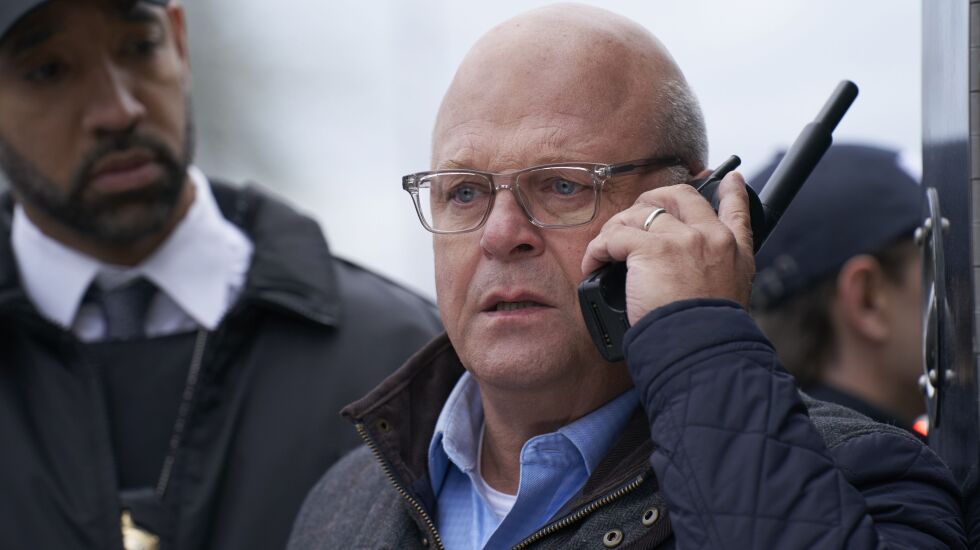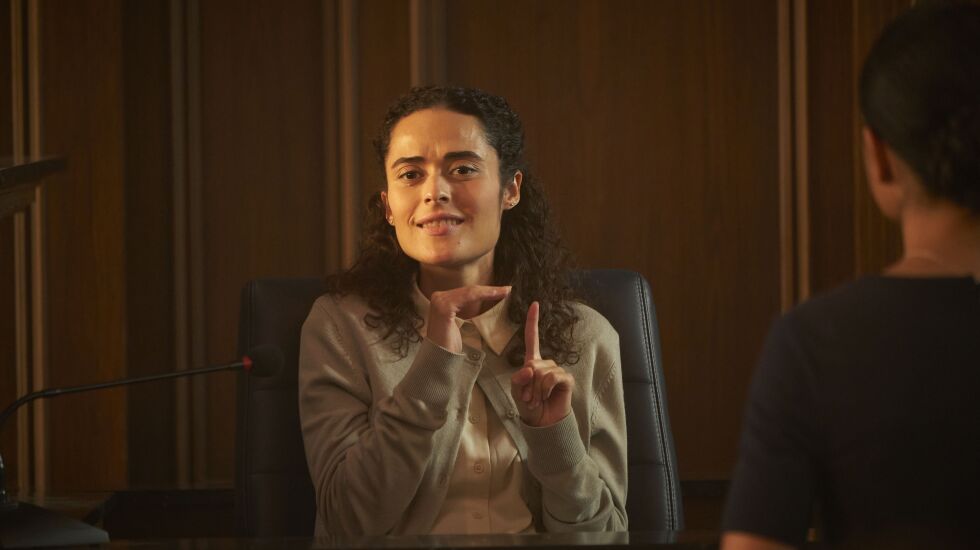
Crime stories are the dominant dramatic fuel that long have kept the collective television engine running, whether we’re talking about old-fashioned procedurals on network TV or the never-ending flood of true-crime documentaries and “inspired by real-life events” streaming series.
The Fox anthology series “Accused” would seem to have all the ingredients of a solid and long-running hit, from the pedigrees of the producers to the compelling elevator-pitch premise to the impressive roster of guest stars and episode directors — but based on the five episodes (of a 15-episode first season) provided to critics, this is a grim and almost robotically formulaic effort that rarely skims beneath the surface in each self-contained, one-hour (minus commercials) story.
Developed by Howard Gordon (“Homeland” and “24”) and based on an award-winning BBC series by Jimmy McGovern, “Accused” tells each crime tale from the perspective of the defendant. We start by seeing the accused about to face trial — often entering a courthouse through a media frenzy because these are “heater” cases — and then toggle back and forth between trial scenes and flashbacks chronicling the spiral of events that led to such serious and often controversial criminal charges.
Four of the five episodes are centered on parents involved in heart-wrenching situations. In the opener, the always compelling Michael Chiklis plays a wealthy neurosurgeon who is convinced his deeply troubled and volatile teenage son (Oakes Fegley) is capable of committing horrific violence and could be plotting an attack on his classmates. From an early age, the boy has demonstrated frightening tendencies, and his parents (the wonderful Jill Hennessy plays his mother) have tried a myriad of counselors and have transferred him from school to school — but the situation is only getting worse.Scott’s father loves him unconditionally, but will he be able to live with himself if doesn’t do whatever is necessary to stop Scott from committing unspeakable crimes? Chiklis is outstanding, but the resolution to this episode feels a bit contrived — a pattern we see throughout the episodes, as first-rate actors are often shoehorned into plots that tie things up a little too neatly and without much nuance.
In “Ava’s Story,” Stephanie Nogueras is a deaf surrogate who happens to give birth to a deaf baby, and is moved to take drastic actions when she learns the infant’s parents are planning surgical intervention. This raises some provocative questions about hearing society’s treatment of the Deaf, and director Marlee Marlin employs some effective techniques, e.g., using subtitles through the episode — but again, the resolution feels pat.

Director Billy Porter and writer Daniel Pearle deliver the most engrossing episode, “Robyn’s Story,” which tells the story of a drag queen (J. Harrison Ghee doing nomination-level work) who gets involved with a closeted gay man (Chris Coy) who lies about being widowed and has some serious anger issues. In this story, the trial for a crime we won’t reveal here is almost secondary to the empathetic and richly layered depiction of Robyn, who is so much more than the easy stereotypes by which he is often defined.
Malcolm-Jamal Warner delivers strong work in the melodramatic “Kendall’s Story,” playing a father who is urged on by his two best friends (Donald Paul and Kogan Holbrook-Smith) to join them in a vigilante takedown of the man suspected of molesting his 10-year-old daughter. The always reliable Wendell Pierce plays a detective who has lost the trust of the Black community after looking the other way during the murder of a Black man by police, and the episode touches on some complex issues, but wraps things up with some overwritten speechifying.
In “Billy’s Story,” Keith Carradine is heartbreakingly good as an aging pop star whose adult son (Evan Gamble) has been battling a crippling drug addiction for years and shows no signs of recovery — but the episode crams in a number of subplots and ends on a somewhat sour and unsatisfying note.
Even though “Accused” moves from city to city and case to case each week, and there are different directors behind the camera, there’s a certain sameness to the visual tones; the series has the competent but not particularly stylish look of a crime procedural from the 1990s. The premise of telling each story from the defendant’s point of view is a welcome departure from so many cop/lawyer/detective shows, but the flashbacks unfold in a way that leaves little doubt as to the final verdict. “Accused” wants to put us in the shoes of the defendants so we’ll ask ourselves what we do in these situations — but so far, the answers are too easy.







